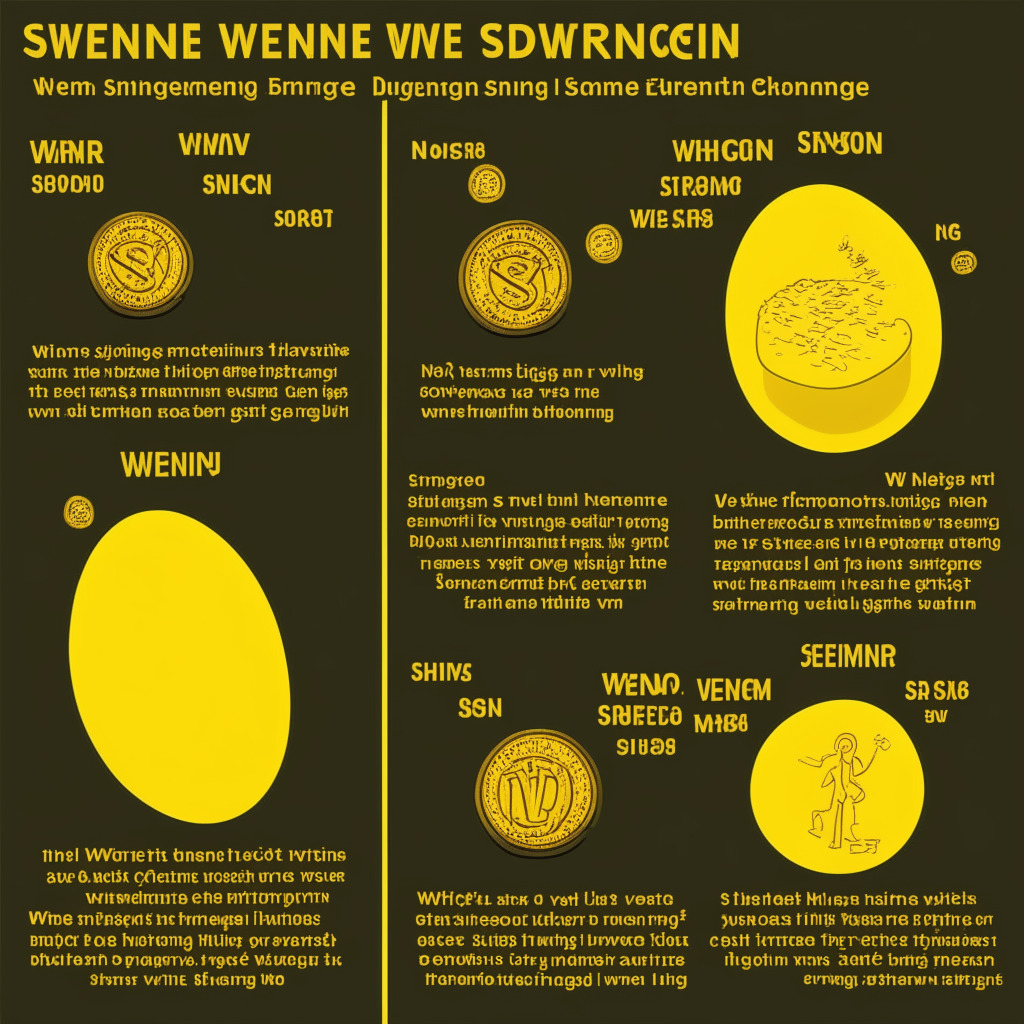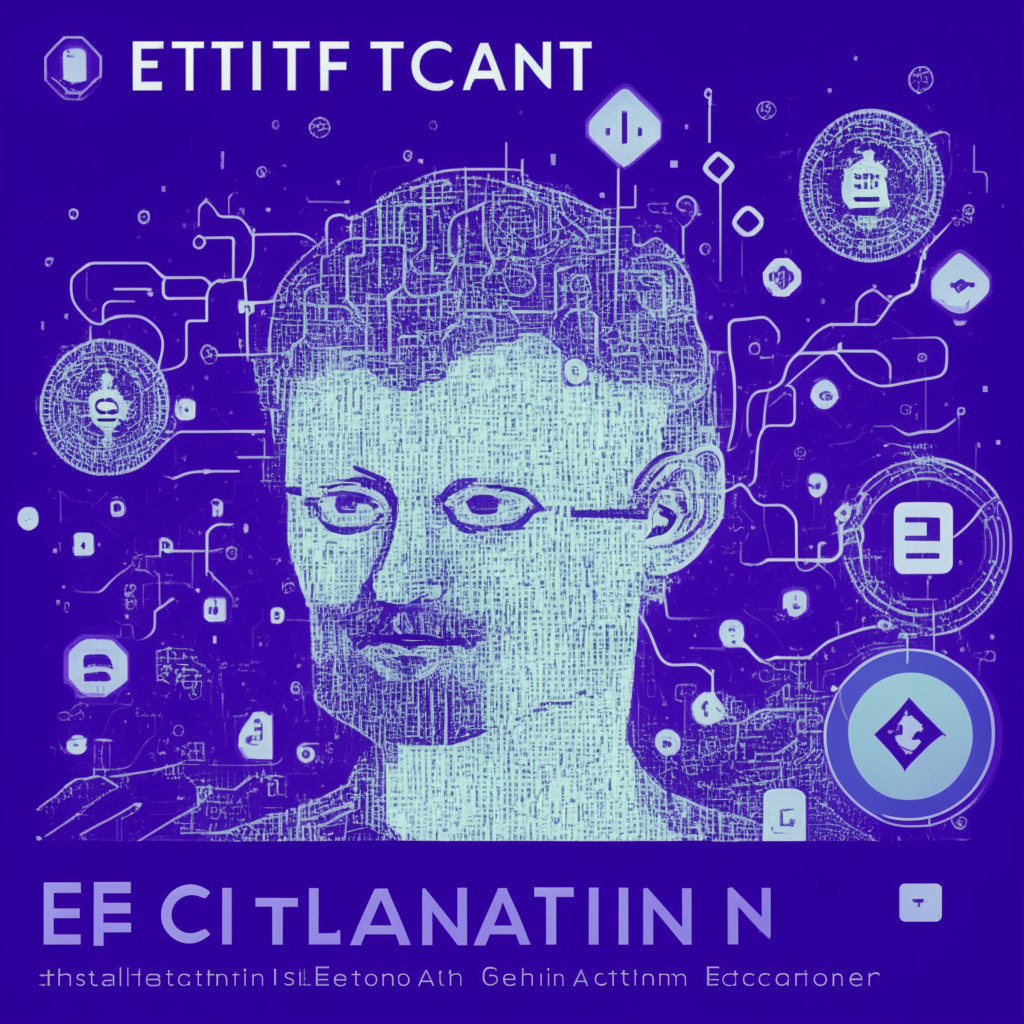Japan’s recent legal framework for stablecoins signals a move towards bridging traditional and decentralized finance, while the US faces regulatory hurdles and uncertainty. Japanese banks are now preparing to issue stablecoins as the country embraces distributed ledger technology for faster, cheaper payment systems.
Search Results for: TAMA
Japanese Airline ANA Dives into NFTs: Promising Trend or Unnecessary Distraction?
Japan’s largest airline group, All Nippon Airways (ANA), embraces the blockchain future by launching an NFT marketplace on the Ethereum blockchain, called ANA GranWhale NFT Marketplace. The platform offers aviation photography, digital collectibles, and more, signifying ANA’s attempt to engage with customers and capitalize on the booming NFT market.
Ethereum Dapp Usage: Analyzing the Jimmy Song vs Joe Lubin Bet and Decentralized App Debate
In a bet from five years ago, Ethereum co-founder Joe Lubin needed to prove that five or more Ethereum-based dapps would maintain significant user activity. Blockchain data firms claim five dapps met these usage levels, but there is debate over qualification. The evolving landscape of cryptocurrency applications will continue to shape the industry, driven by innovative thinking and adoption potential.
Exploring Magic’s $52M Funding: Wallet-as-a-Service Future, Adoption, and Trustworthiness
San Francisco-based Magic has raised $52 million in a funding round led by PayPal Ventures, with participation from venture firms like Cherubic, Synchrony, and Northzone. Magic offers a wallet-as-a-service solution, widely used in retail, music, and gaming industries, enabling digital ownership opportunities and expanding functionality. The company aims to increase adoption in the European Union and Asia-Pacific region.
Understanding the Impact of FATF’s Travel Rule on Crypto Exchanges and Users: Pros and Cons
Japanese cryptocurrency exchange bitFlyer adopts limitations on crypto deposits and transfers to comply with the Financial Action Task Force’s (FATF) Travel Rule. The new restrictions apply to transactions with exchanges participating in the Travel Rule Universal Solution Technology (TRUST) network in 21 countries and regions.
Crypto Week Highlight: Mastercard, Elon, Tax Evaders, and Global Regulations
This crypto news roundup features Mastercard’s EVP on crypto and blockchain’s financial value, Ripple’s $1 billion expansion, and Biden’s crackdown on wealthy tax evaders. Other highlights include Binance’s rebuttal on mixed funds, Coinbase’s petition to the SEC, global crypto regulations, and ongoing vigilance against scams and cybercrimes.
Exploring $COPIUM: Skyrocketing Meme Coin with a Twist in NFT Ecosystem and Airdrop Events
$COPIUM, a meme coin with a 36% price increase since its Uniswap launch, sets itself apart with an upcoming NFT and token airdrop event, offering unique utility and lucrative prospects. Influential figures show interest, and its NFT ecosystem and strong community backing suggest promising potential in the crypto industry.
Openfort’s Wallet-as-a-Service: Revolutionizing Crypto Gaming or Overhyping Infrastructure?
Crypto startup Openfort raised $3 million to develop its wallet-as-a-service software for game developers and publishers. Offering frictionless wallet technology via APIs, Openfort aims to simplify and enhance the gaming experience by abstracting cumbersome crypto transaction elements and supporting Ethereum-compatible networks.
Swaprum Rug Pull: DeFi’s Security Dilemma and CertiK’s Raised Eyebrows
Decentralized exchange Swaprum disappears with $3 million of client funds just weeks after being audited by CertiK. As DeFi projects face growing security threats, the need for thorough security audits and due diligence is more crucial than ever.
Ledger Recover Controversy: Analyzing the Crypto Hardware Wallet’s Communication Crisis
Ledger, a Paris-based hardware wallet maker, faced backlash after introducing its “Ledger Recover” seed phrase recovery service, raising security concerns among crypto enthusiasts. Misunderstandings and poor communication strategy added to the chaos, highlighting the importance of clear communication in the evolving crypto space, where users possess varying technical expertise.
Shocking $15M Crypto Scam Exposed: How Phishing Operation Mimicked HitBTC Exchange
A scammer or group used a sophisticated phishing method to steal approximately $15 million in cryptocurrency on a fake HitBTC exchange platform. The fake website gained unauthorized access to users’ holdings, compromising their assets. It is crucial to verify the browser’s URL to combat such attacks.
Enhancing Security with Bitski and Ledger Wallet Integration: Pros, Cons, and Conflicts
Web3 wallet Bitski has integrated with hardware wallet Ledger, enhancing security features and enabling users to securely connect their wallets to decentralized applications (dApps). The partnership supports user-friendly wallet experiences and provides a transaction simulator to help identify potential security risks. Users can switch between Ethereum and Polygon networks to purchase non-fungible tokens across both platforms.
WEN Token’s Dismal Decline vs $SPONGE’s Steady Resilience: Where to Invest Next?
While WEN token faces a drastic decline, $SPONGE offers a promising alternative for crypto enthusiasts, showcasing an astounding +605.79% growth from its all-time low. High trading volumes, locked liquidity, and a growing community contribute to its credibility and potential investment opportunity in the meme coin market.
Meme Coins Resurgence: High-Risk, High-Reward Opportunities in the Crypto Market
Meme coins are back in trend, presenting high-risk, high-reward opportunities in the cryptocurrency market. Recently launched top meme projects include Pepe, Pooh, and GensoKishi Metaverse. Caution is necessary, as meme coins can prove highly unpredictable, and a thorough research is essential before investing.
Account Abstraction: The Key to Onboarding the Next Billion Crypto Users?
Elisha Owusu Akyaw and Ivo Georgiev, CEO of Ambire, discussed the potential of account abstraction in increasing crypto adoption. Georgiev argues that making wallets programmable with multiple keys can offer advanced features, such as two-factor authentication, and attract a wider audience by embedding wallets on websites. This could play a crucial role in onboarding millions, if not billions, of users worldwide.














